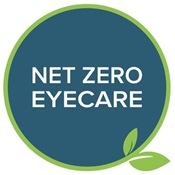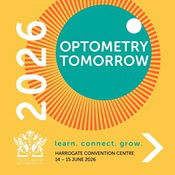General News
Eye-care waiting lists unacceptable at 46,000 in Ireland
Eye-care waiting lists unacceptable at 46,000
Optometry Ireland warns of delays to treatment
Solutions available to eye-care delays it states:
The waiting list for public eye-care remains unacceptably high at 46,000 – as Optometrists today called for sanction to help reduce the delays.
National Treatment Purchase Fund (NTPF) figures to December 2021 show that almost 38,900 people were on the outpatient eye-care waiting list. Almost 16,500 were waiting more than a year and 12,200 more than 18 months.
Furthermore, almost 7,600 people were awaiting inpatient eye procedures.
However, Optometry Ireland (formerly the Association of Optometrists Ireland, AOI) President John Weldon said there are opportunities to have patients seen more quickly to improve eye health – and at less cost.
“To address these unacceptable delays for public eye-care – Optometrists propose addressing ‘three Cs’ which are cataract, children and coding.
Cataract
“The excellent and HSE awarded ‘healthcare innovation’ Sligo cataract scheme began in 2012 and smashed waiting lists in the North West. That region still has the shortest wait time in the country. To run this scheme nationally would take only instruction from the Minister for Health. It requires no additional funding, no new infrastructure and no lengthy recruitment competition.
“Community Optometrists co-working with hospital surgeons is the best internationally accepted model to manage Cataract. We need our surgeons to be delivering surgery, rather than dealing with work that is within the scope of practice of Optometrists.
Children
“How we care for the eye health our young people is shamefully negligent in comparison to accepted international practice. In addition to the ‘postcode lottery’ created by disparate local eye-care schemes, our national screening system for national school children has been let collapse.
“Optometrists have the capacity and expertise to lead out on delivery of a new programme for school children, relieving pressure on the HSE community health areas and hospitals. Where onward referral is required, Optometrists can communicate with Ophthalmology and HSE Orthoptist colleagues through established secure electronic systems.
Coding
“Optometrist delivery of further treatments such as removal of foreign bodies under topical anaesthesia, treatment of minor eye infections and inflammation and allergy require no new budget vote and no infrastructure investment. Through a Statutory Instrument, current practices could be regularised and Optometrists already established inter-disciplinary working with GPs could be extended.”
Mr Weldon concluded by saying that the delays in eye-care, which so detrimentally affect quality of life, can be easily addressed.
“There are 300 practices and 700 Optometrists all across the country who are highly trained, have state of the art equipment and have capacity to provide more services, and at less cost than hospitals. Optometry Ireland encourages that in the interest of improving public eye health a greater role for Optometrists be sanctioned by the Department of Health and HSE.”






















